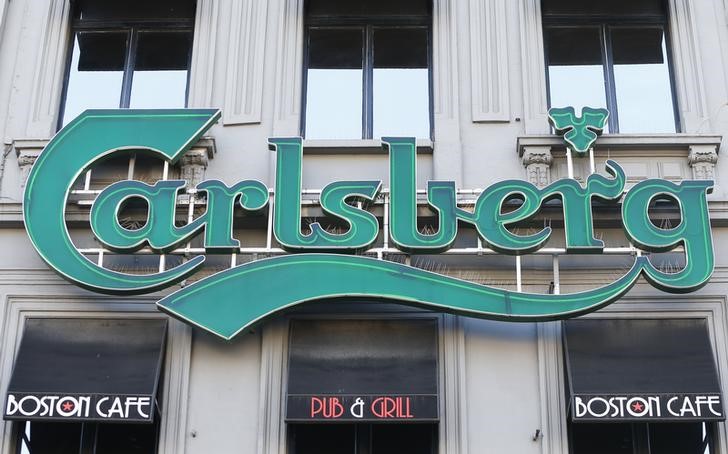Nvidia shares pop as analysts dismiss AI bubble concerns
Investing.com -- Carlsberg A/S A (CSE:CARLa) (CSE:CARLb) missed sales expectations in the first quarter and said it had not observed major changes in consumer behavior across other markets, although it flagged ongoing volatility in sentiment.
The company’s shares fell more than 2% in Copenhagen trading Tuesday.
The Danish brewer kept its full-year guidance unchanged despite first-quarter sales coming in slightly below analysts’ expectations.
"It was a soft start to the year," CEO Jacob Aarup-Andersen said in a statement, referring to the broader consumer and economic environment.
Total (EPA:TTEF) sales volumes rose 14.5% year-over-year in the first quarter, helped by last year’s acquisition of British soft drinks maker Britvic (LON:BVIC).
However, organic volumes fell 2.3% during the same period, missing the consensus estimates by 120 basis points (bps). The company’s organic growth for the quarter was -1.5%, notably worse than the -0.1% expected by analysts.
Global sales for the quarter rose 17% to 20.12 billion Danish crowns ($3.07 billion), slightly missing the 20.4 billion forecast in a company-compiled analyst poll.
Carlsberg did not release any profit figures for the first quarter.
"This is the first company we cover that has meaningfully missed expectations in Q1," RBC Capital Markets analysts said in a note.
"It’s not a disaster, and Q1 is not a big quarter, but it’s a worthwhile reminder that the world is challenging and hard to predict," they added.
Carlsberg said it has "not seen any material changes in consumer behaviour in our markets during the first quarter, but the global macroeconomic environment and consumer sentiment are volatile and uncertain."
The brewer has limited direct exposure to U.S. President Donald Trump’s tariffs, as the American market represents only a small part of its overall sales.
The company continues to expect organic operating profit growth of between 1% and 5% for the year.
In China, Carlsberg’s largest market, volumes grew 2%, supported by demand for premium products and sales in major cities. However, the company said local mainstream brands in the western regions were pressured by weak consumer sentiment.
Carlsberg added that the Chinese beer market shrank 4% last year and likely declined by a low-single-digit percentage in the first three months of this year.
